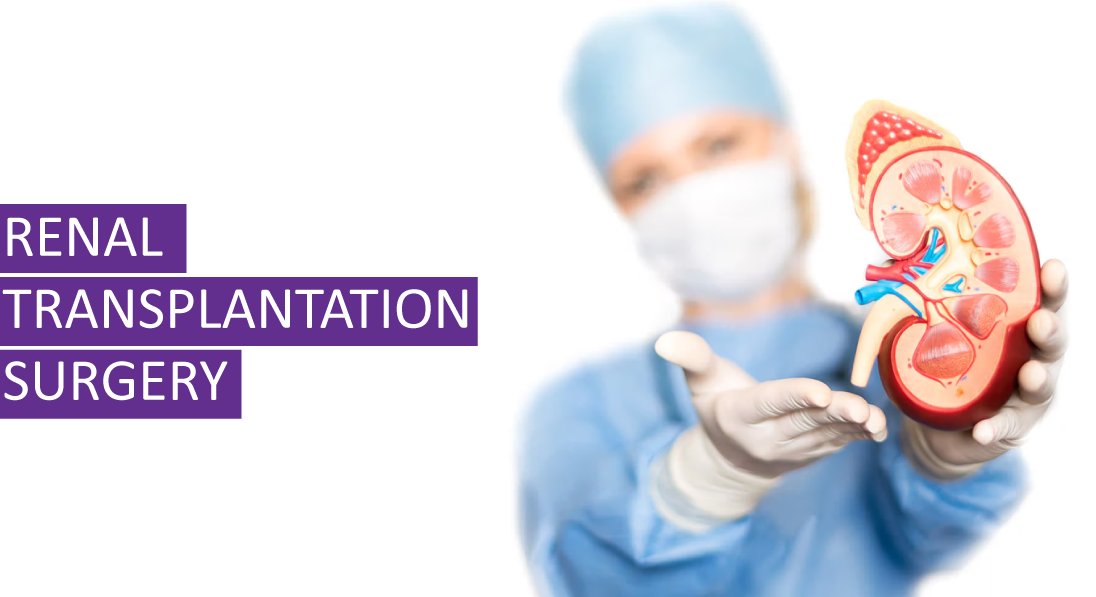RENAL TRANSPLANTATION
Renal transplantation, also known as kidney transplantation, is a surgical procedure in which a healthy kidney from a living or deceased donor is transplanted into a person with end-stage renal disease (ESRD) whose own kidneys have failed. It is considered the best treatment option for patients with ESRD, as it offers the opportunity for a better quality of life and increased longevity compared to long-term dialysis.

Here is an overview of the renal transplantation process:
- Evaluation: The first step is the evaluation of the patient to determine if they are a suitable candidate for transplantation. This includes a comprehensive medical assessment to assess the overall health and eligibility for the procedure.
- Matching and waiting list: If the patient is eligible, they are placed on a waiting list for a deceased donor kidney. The allocation of organs is based on factors such as blood type, tissue type, and the severity of the recipient's condition. The waiting time can vary depending on the availability of suitable organs.
- Living donor transplantation: Alternatively, patients may have the option to receive a kidney from a living donor who is a compatible match. This could be a family member, friend, or even an altruistic donor. Living donor transplants offer several advantages, including better outcomes and shorter waiting times.
- Surgery: Once a suitable donor kidney becomes available, the transplant surgery is scheduled. The surgeon places the new kidney in the lower abdomen and connects the blood vessels and the ureter (tube that carries urine from the kidney to the bladder) to the recipient's existing structures.
- Post-operative care: After the surgery, the patient is closely monitored in the hospital for a period of time to ensure the transplanted kidney is functioning properly and to manage any potential complications. Medications are prescribed to prevent organ rejection and to manage other aspects of the patient's health.
- Follow-up care: Following discharge from the hospital, the patient continues to receive regular check-ups and follow-up care to monitor the kidney function, manage medications, and address any potential complications or rejection episodes. It is important for the patient to adhere to the prescribed medication regimen and make necessary lifestyle changes to support the success of the transplant.
Renal transplantation is a complex procedure, and the success of the transplant depends on various factors such as the compatibility of the donor organ, the overall health of the recipient, and the post-operative care received. With advances in surgical techniques, immunosuppressive medications, and improved post-transplant care, the outcomes of renal transplantation have significantly improved over the years, resulting in higher success rates and improved quality of life for recipients.

